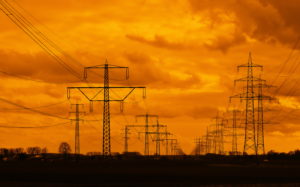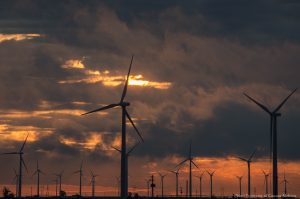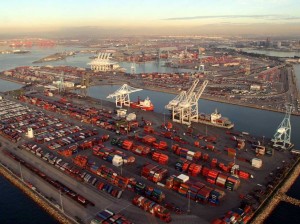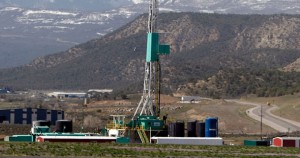23 item(s) were returned.
Chief Operating Officer
Schweitzer Engineering Laboratories, Inc.
We read in the news weekly, sometimes daily, about advanced, persistent cybersecurity threats from nation-states, and we are constantly evolving our thinking to innovate against these threats. Cybersecurity is a critical component for the secure and reliable operation of electric power systems and an important priority for Congress. The Senate held a hearing two weeks ago on the status and outlook for cybersecurity efforts in the energy industry. One of the issues most critical to the cybersecurity challenges we face in the energy industry today is the act of balancing regulation and innovation in addressing cybersecurity threats. There are clear and… [more]
View InsightEnergy Project Campaign Manager, Policy Analyst
Texas Public Policy Foundation
The Production Tax Credit (PTC), a federal renewable energy subsidy, is a $24-per-megawatt-hour credit based on energy production rather than demand. That means those who produce renewable energy can receive the credit regardless of whether or not that electricity is actually needed. The incentive is so immense that at peak hours of output wind producers can actually pay retail electric providers, the companies that deliver the energy to homes and businesses, to take their product. This “negative pricing” scheme caused by the PTC and other subsidies is having serious consequences.The instability it causes can push out the energy producers that keep… [more]
View InsightExecutive Director
Environmental and Energy Study Institute
According to the EPA, its proposed Clean Power Plan (CPP) would lead to a 30 percent cut in carbon emissions from the power sector by 2030, compared to 2005 levels. The CPP sets a customized goal for each state, which takes into account its existing policies and the unique structure of its energy system. The current draft regulation gives states interim goals for 2020-29, and a final target for 2030. The EPA proposal offers a great deal of flexibility for states to choose how best to achieve these emissions reduction goals. The CPP suggests four “building blocks” that states can… [more]
View InsightMember
U.S. House of Representatives
As Chairman of the House Subcommittee on Energy and Power, I’m continuing the fight against President Obama’s Environmental Protection Agency’s (EPA) overregulation of our nation’s power plants without any regard to the consequences for our economy and consumers. This week, the EPA is expected to release its proposed rule regulating carbon dioxide emissions from existing and modified electricity power plants. This effort is certain to result in a de facto cap and trade program, which Congress most recently rejected in 2009. This regulation follows the proposed rule on new power plants, which essentially makes it illegal to build a power… [more]
View InsightMember
U.S. House of Representatives
When we think of environmental policies that impact business, we don’t often think of increased profits. Too often the private sector is positioned at odds with efforts to address environmental issues through state and federal legislation. But alternatives to this false dichotomy exist and it’s important that we identify and act on these opportunities. As an example, let me point to the adjacent ports of Long Beach and Los Angeles, which together make up the busiest container port complex in the Western Hemisphere. Last year, the ports moved the equivalent of nearly 15 million 20-foot-long containers. The ports contribute well… [more]
View InsightDirector, Energy Project
Bipartisan Policy Center
The Bipartisan Policy Center’s (BPC) Energy Project seeks your input as part of a yearlong effort aimed at fostering constructive dialogue and action on reforming the Renewable Fuel Standard (RFS). BPC commissioned a series of background papers on various RFS topics. The last three papers, summarized below, approach the RFS from the perspectives of policy and law, considering both the Environmental Protection Agency’s authority as well as broader federal regulations. Inventory of Federal Regulations Affecting Biofuels other than the Renewable Fuel Standard [Read here] Van Ness Feldman “Although the RFS has been the key driver in the production and use… [more]
View InsightLegislative Director
Congressman Matt Cartwright
The Resource Conservation and Recovery Act (RCRA) of 1976 requires the safe disposal of solid waste and hazardous materials. In 1980, RCRA was amended to exempt waste from the production and development of oil and natural gas (E&P waste). In 1988, the EPA issued a Regulatory Determination further exempting oil and natural gas producers from RCRA’s most stringent safety requirements. This left the task of regulating disposal of these wastes to states, which they have done to varying degrees. Recent reports show the extent of the problem and highlight the potentially fatal consequences. The regulatory determination was issued before fracking,… [more]
View Insight“Our National Energy Policy: Post-Election Prospects and Challenges” December 14th, 2012 National Press Club, Washington, DC See below for an abridged version of the transcript and a full video recording of the event. You can view or download the full transcript here. Opening Remarks: WILLIAM SQUADRON, President, OurEnergyPolicy.org Speakers: JAMES CONNAUGHTON, Executive Vice President and Senior Policy Advisor with Exelon Corporation and Former Chairman of the White House Council on Environmental Quality GENERAL JAMES L. JONES, USMC (retired), Senior Fellow at the Bipartisan Policy Center, Senior Advisor to the American Energy Innovation Council with the Bipartisan Policy Center, and Former… [more]
View InsightBoth the Democratic and Republican parties have released their platforms, each offering a vision of the American energy landscape in the coming years. Both parties promote distinct visions of an “all-of-the-above” approach to energy. The end goal for both parties is U.S. energy independence, with the GOP’s vision seeming to rely primarily on the development of America’s fossil fuel resources and a business-friendly regulatory regime, while the Democrats’ platform promotes a “move towards a sustainable energy-independent future” that would allocate resources between fossil fuel and renewables development, alongside to a variety of “green” initiatives. GOP Democrats Fossil Fuels Supports “new, state-of-the-art coal-fired… [more]
View InsightDescribing recently implemented or approved regulations – including the Greenhouse Gas New Source Performance Standard, the Utility MACT standards, and the Cross-State Air Pollution Rule – and their deep impacts on the coal industry, a report from the Heritage Foundation calls on Congress “to create a framework that restricts overregulation, empowers the states, balances economic growth and environmental well-being, and creates a timely permitting process for all aspects of coal production.” The report finds no issue with the free market changing coal’s share of our energy mix, but argues against artificially reducing that share through disincentives and regulation. The report states that… [more]
View Insight





